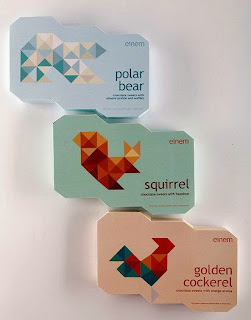Trend is never constant, it changes with passing time, every-time.
About Trends
One wonderful trend we’re noticing in graphic design and illustration an acceptance and celebration of our own unique, local experiences and using these as inspiration for substantial concepts or for creating innovative styles.
However, there will always be those shiny, tempting design trends that initially just look so cool, and eventually become lazy cues for a concept, culture or theme. In the internet-driven world we live in it can be difficult to pinpoint the origins of a trend and they gain traction exponentially faster than before we were able to share things with a massive audience online. What this means, at times, is that it feels like we’re seeing the same thing eeeeverywhere. (Between 10and5)
Being a graphic designer, it is important to know the trends that are circling you field.
"The graphic design industry evolves in leaps and bounds not only through the various technological advances made in design software, cameras, computers etc., but also through the trends in colors, ideas and customer tastes.
A graphic designer needs to be well read, and have the necessary skill sets to adapt easily from one trend to another. "
Below are trends that are currently being mostly used
Flat Design
Microsoft
- The new Windows 8 Start screen is now powered by Live Tiles (animated, notification-like widget) sorted in grids with a horizontal scrolling layout that takes advantage of common landscape displays.
- Windows 8’s Modern UI is based heavily on the Bauhaus movement, founded by architect Walter Gropius, including proponents of the school’s philosophy Ludwig Mies van der Rohe, Le Corbusier and modernist painter Piet Mondrian. It was also inspired by metro transit signs in terms of icons and typography.
Google
- Google’s card-based design can be seen most notably on Google Now. The use of white spaces and condensed Roboto typeface make the overall layout very clean and easy to digest. The design, while considered flat, still uses subtle gradients and shadows as elements to aid highlighted, stacked cards.
- Textual information is organized per size and color and in order of importance. Title headers are usually larger and dark while descriptive copies are grayed and sometimes italicized. Google’s use of flat-toned vector illustrations and icons also echoes the company’s dedication to clean and modern design.
Apple
- With iOS7, Apple introduced the use of blurred translucency to provide a sense of context and place for the onscreen elements. The new version also introduced a thinner, modern-looking typeface in the form of Helvetica Neue Light. This fits the overall new user interface with a lighter and breathable layout especially in the Mail and Calendar app.
Pros and Cons : Flat design
Pros
Simple mobile interface design
Bright color sets the mood
Visual are sharp and clean
Focus on beautiful type
Cons
- Too simple of a interface, people might have usability problems
- Weak Typography becomes obvious
- Flat design/icon can look too simple
Grid Layout
Grid layout started out with Pinterest. Grid layout a user experience that is great for tangible product based businesses. This layout allows users easily to view each item on bye one in a structural manner.
Pros
- Massive content are evenly distributed to columns and rows, making a compact arrangement with its own visual rhythm
- Does not feel chaotic and messy, instead looking clean and structured
- Grid layout offers a level of stability to the structure
Cons
- Grids may cause boring, stating designs.
- Some people claim it makes you less creative, they are trapped within its borders.
- May not be suitable for all cases and sometimes cannot satisfy a specific web design specific.
Geomtrical shapes
The geometric trend has taken root because of it’s simplistic and clean design, so a lot of graphic designers have been working away on trying to push the boundaries on what can be done with geometric design. Whilst doing so they have been creating some gorgeous masterpieces.
Don’t be fooled by apparent simplicity though — the level of skill and attention required to produce this kind of work
Illustration
As companies attempt to invoke an emotional response in their audience, they will employ the soft, appealing nostalgia of the hand drawn illustration as opposed to the blocky, futuristic and possibly intimidating feel of digitally rendered illustration.
Infographics
Infographics is information or data that is presented using a visual image or diagram. Personally, info graphics is one of my favorite "design trends" out there, using visuals to convey an information that is harder to understand in text. For people who likes to learn about new things but doesn't really want to read a giant book, will find info graphics light and easy on the easy and brain.
But infographics is not by any means a walk in a park. The purpose of an infographic is to make the data/information clear. Finding the balance of just enough is crucial.
Conclusion
Trends are not all bad. It’s more of a matter of application, where the success of any given piece is determined by an abidance of things such as skill, craftsmanship, subject matter, concept and of course, personal taste.


























